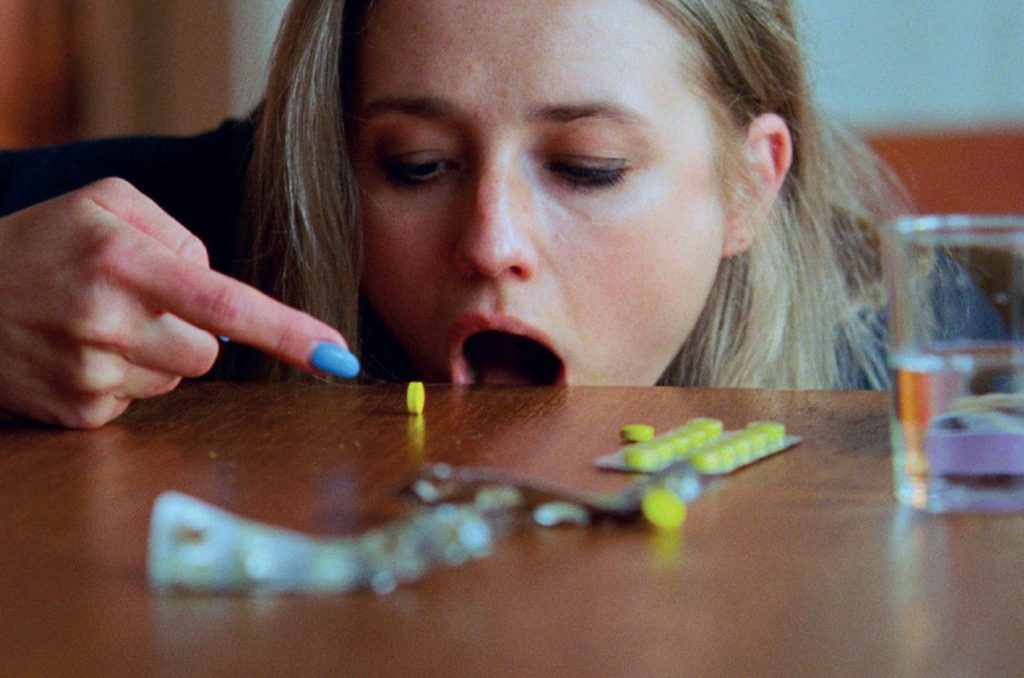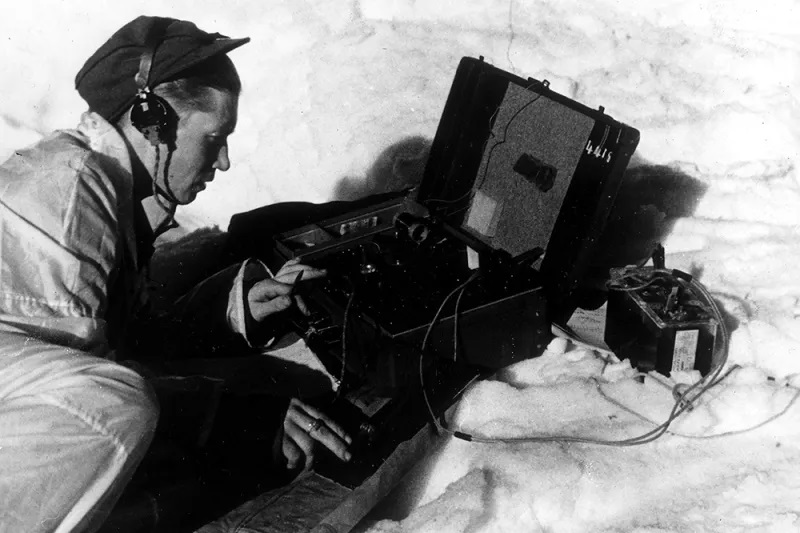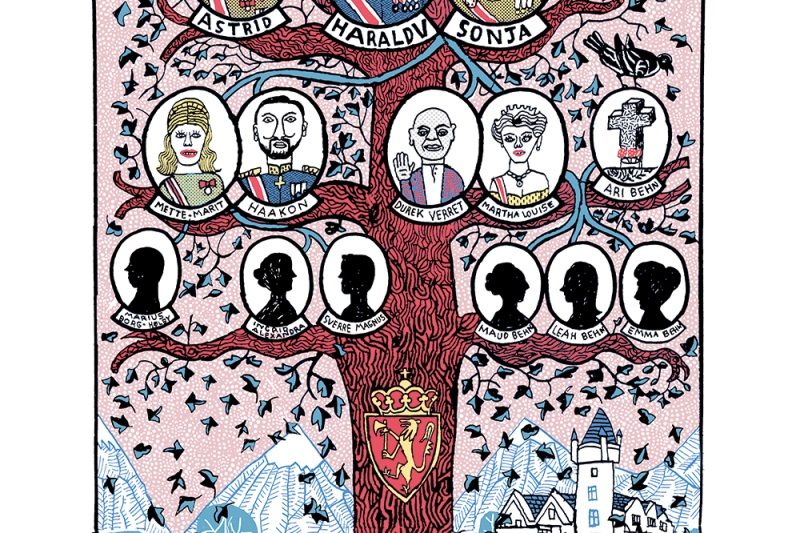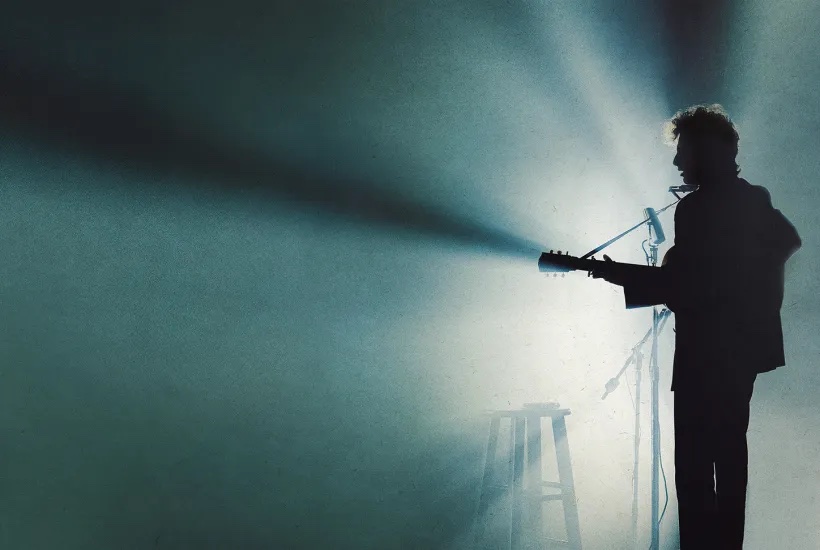Sick of Myself is a satire from Norway that skewers the “look at me, look at me” generation addicted to social media and asks: how far will someone go? Too far, is the short answer. Much, much, much too far, is the longer one. Indeed, although this starts out as a dark comedy, it does eventually escalate into full-on body horror, and while it is compelling and original, if you are as squeamish as I am, you will eventually be watching from behind your hands. Still, I did catch around 67 percent, so consider this a review of 67 percent of the film. The other 33 percent is anyone’s guess.
She steals her boyfriend’s thunder at the dinner to celebrate his exhibition by faking a nut allergy
Written and directed by Kristoffer Borgli, this is the story of Signe (Kristine Kujath Thorp), which is pronounced “Seen-ya,” in case you were wondering. She works in a coffee shop and isn’t special in any way, although she keeps telling her friends: “I should have my own podcast.” We get the measure of her early on when a woman mauled by a dog stumbles into the coffee shop. Signe rushes to her rescue and by the time she’s finished she’s the hero of the hour and saved the woman’s life and the story becomes one exaggeration heaped on another. She longs to be the center of attention but as she’s white, blonde and blue-eyed, it’s not like she’s first in line when it comes to, say, claiming any kind of victimhood.
She later tries provoking a dog in the hopes that she’ll get mauled and everyone will rally round, but the dog (a husky) is too lovely to comply. This film could also be called The Worst Person in the World, like that other Norwegian film. In fact, The Worst Person in the World should now be renamed The Second Worst Person in the World because Signe is definitely the worst.
She lives with her boyfriend, Thomas (Eirik Saether), an artist who is equally charmless and steals furniture that he transforms by turning it on its side, essentially. Yet he is starting to make a name for himself in the Oslo art scene and this winds her up horribly. She steals his thunder at the dinner to celebrate his exhibition by faking a nut allergy (I laughed). Then it all spirals out of control when she’s perusing the Mail Online, which never ends well, and reads about a Russian anxiety drug that is causing horrific side effects in the form of skin rashes and lesions and eventual disfigurement. She’s sick of being ordinary. That’s her illness, but what if she’s properly sick? That’ll make everyone sit up. She scores the drug and can we just say, the results aren’t pretty? And leave it there?
This becomes increasingly graphic, with blood and also vomit, although on that front it’s not on the same level as Triangle of Sadness, thankfully. And, also thankfully, this is interspersed with her self-regarding fantasies, like the one about her own funeral, which is so packed that mourners have to be turned away, which also made me laugh. So you do get a breather in that sense. And there are some biting moments, particularly where it sends up the “inclusiveness” of a fashion industry that pretends to care about different body types when it’s really about selling stuff. However, it’s the sort of film that seems to have set itself a challenge as to how tastelessly disturbing it can become, and eventually forgets to have something to say.
Is it about today’s culture, or does Signe just have a personality disorder? It fizzles out in the end. But it is well directed and well performed and it is on to something. Doesn’t this take to the nth degree what we all feel, at some level? For example, shouldn’t I have my own podcast by now?
This article was originally published in The Spectator’s UK magazine. Subscribe to the World edition here.





















